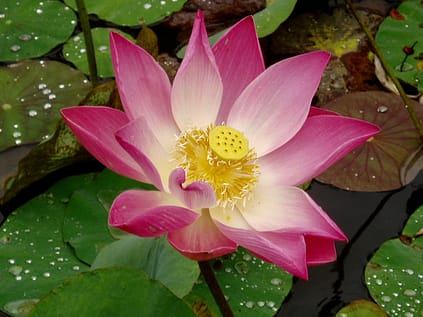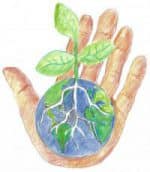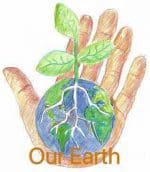 "O King” said the monk, “You may be the king of this country but you are not the owner of this land. You are its trustee and you hold this land for the benefit of all those who are entitled to use it both now and for generations to come”.
"O King” said the monk, “You may be the king of this country but you are not the owner of this land. You are its trustee and you hold this land for the benefit of all those who are entitled to use it both now and for generations to come”.
The saga Mahinda, son of Emperor Ashoka to the King of Sri Lanka.
Who owns the Earth?
"We all do. Or more correctly, none of us does. All life depends on Earth’s life-supporting systems. Our legal system operates in a way as if there is no need for the sustainability and integrity of the Earth system. Laws protect and serve the well-being of people – some more than others -, but has little regard for the well-being of future generations, non-humans and the Earth as a whole".
Introduction Text "The Hague Principles", 10 December 2018
All photos: Michiel C J Damen
 “The mutual-aid tendency in man has so remote an origin, and is so deeply interwoven with all the past evolution of the human race, that it has been maintained by mankind up to the present time, notwithstanding all vicissitudes of history.”
“The mutual-aid tendency in man has so remote an origin, and is so deeply interwoven with all the past evolution of the human race, that it has been maintained by mankind up to the present time, notwithstanding all vicissitudes of history.”
 “The well-being of a community of people working together will be the greater, the less the individual claims for himself the proceeds of his work, i.e. the more of these proceeds he makes over to his fellow-workers, the more his own needs are satisfied, not out of his own work but out of the work done by others."
“The well-being of a community of people working together will be the greater, the less the individual claims for himself the proceeds of his work, i.e. the more of these proceeds he makes over to his fellow-workers, the more his own needs are satisfied, not out of his own work but out of the work done by others."
Rudolf Steiner
The fundamental social law (1905)
Call upon the
UNITED NATIONS
To initiate a process of consultation, negotiation and eventual adoption of a Universal Declaration on Responsibilities for Human Rights and Earth Trusteeship based on these principles.
 The ethics of Earth stewardship are an integral part of the world’s religions and indeed humanity’s cultural heritage, but these ethics have never been more topical than today. We should be ready, therefore, for taking the step towards Earth trusteeship."
The ethics of Earth stewardship are an integral part of the world’s religions and indeed humanity’s cultural heritage, but these ethics have never been more topical than today. We should be ready, therefore, for taking the step towards Earth trusteeship."
Call upon the UNITED NATIONS
To initiate a process of consultation, negotiation and eventual adoption of a Universal Declaration on Responsibilities for Human Rights and Earth Trusteeship based on these principles.

















